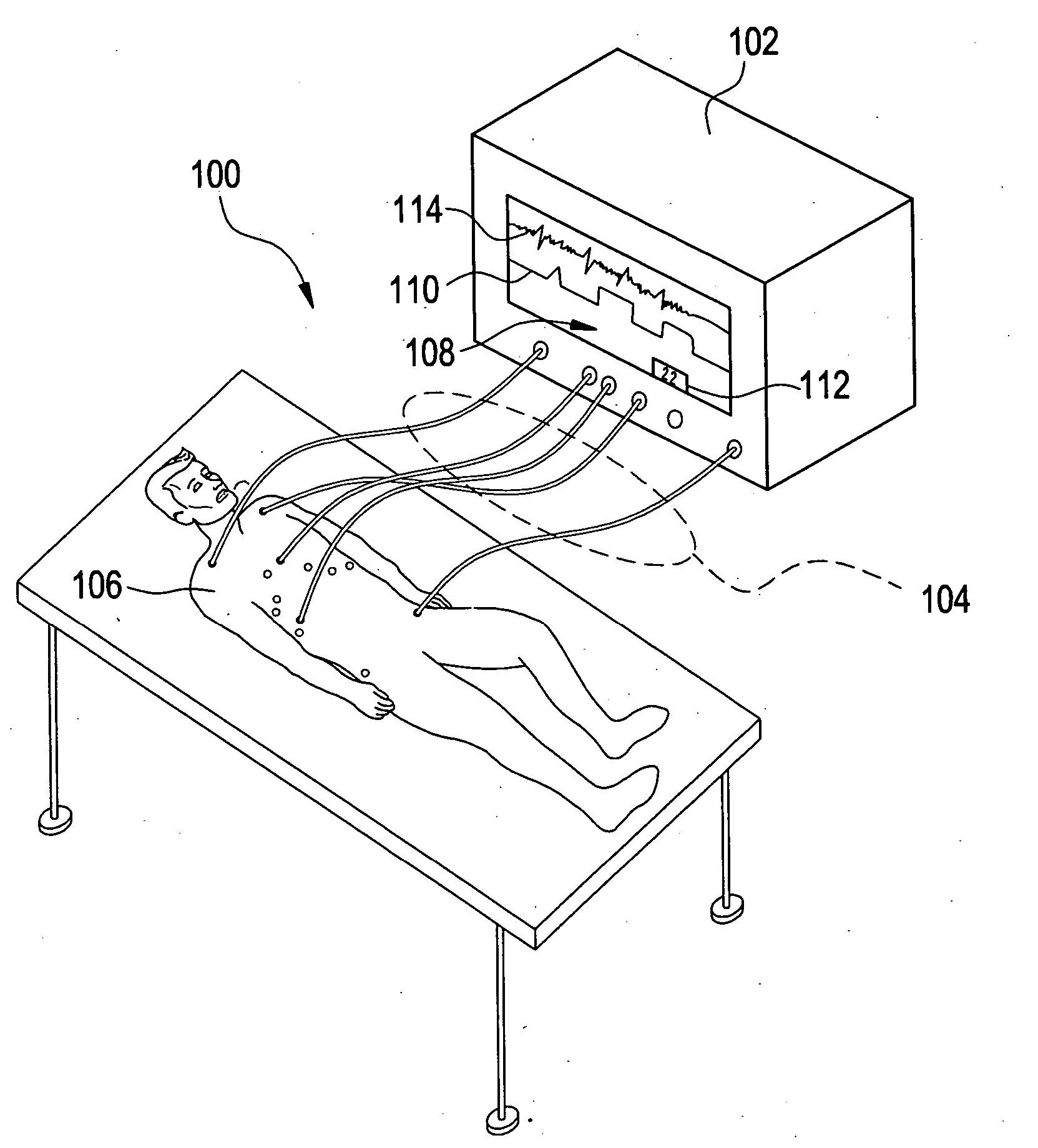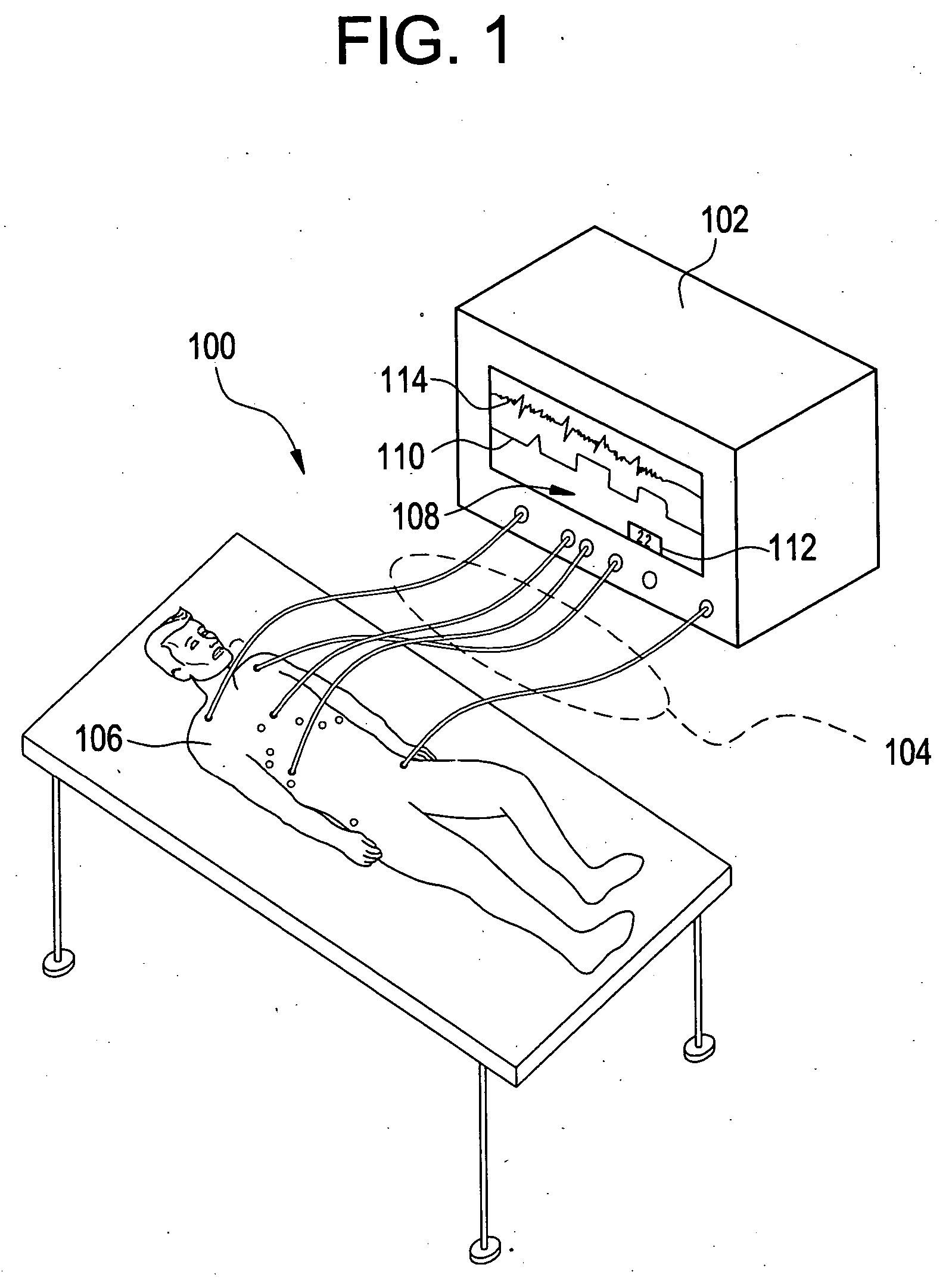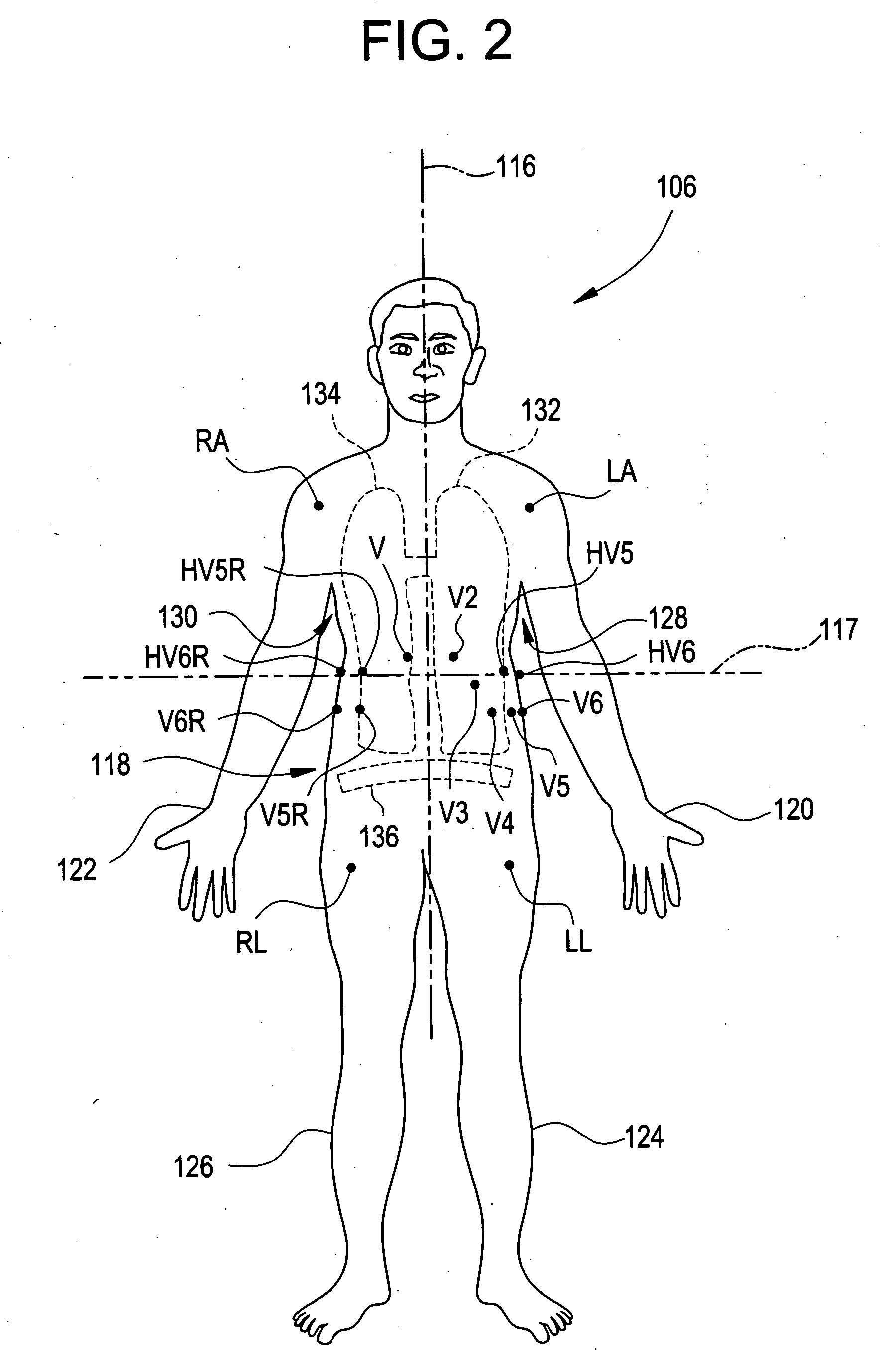Respiration monitoring system and method
a monitoring system and a technology forspiration, applied in the field ofspiration monitoring, can solve the problems of less effective monitoring of traditional electrode placemen
- Summary
- Abstract
- Description
- Claims
- Application Information
AI Technical Summary
Benefits of technology
Problems solved by technology
Method used
Image
Examples
Embodiment Construction
[0023]FIG. 1 illustrates a respiration monitoring system 100 which includes an ECG monitor 102 and electrical lead wires 104 that are connected to monitor 102 at one end.
[0024] System 100 also includes a complete or partial subset of electrodes RA, RL, LA, LL, V1, V2, V3, V4, V5, and V6 (i.e., electrodes configured to be mounted to the subject's body at the standard RA, RL, LA, LL, V1, V2, V3, V4, V5, and V6 electrode locations), as well as one or more electrodes located at non-standard locations HV5, HV6, V5R, V6R, HV5R, and HV6R. Several of these electrodes are attached to the other end of corresponding electrical lead wires 104. Electrical lead wires 104 are connected to the monitor 102 in the illustrated embodiment. Several of these electrodes are not used for respiration monitoring purposes, but for generating ECG signals.
[0025] Monitor 102 is an impedance respiration monitor preferably having the capability of monitoring cardiac activity as well as respiration. Monitor 102 h...
PUM
 Login to View More
Login to View More Abstract
Description
Claims
Application Information
 Login to View More
Login to View More - R&D
- Intellectual Property
- Life Sciences
- Materials
- Tech Scout
- Unparalleled Data Quality
- Higher Quality Content
- 60% Fewer Hallucinations
Browse by: Latest US Patents, China's latest patents, Technical Efficacy Thesaurus, Application Domain, Technology Topic, Popular Technical Reports.
© 2025 PatSnap. All rights reserved.Legal|Privacy policy|Modern Slavery Act Transparency Statement|Sitemap|About US| Contact US: help@patsnap.com



